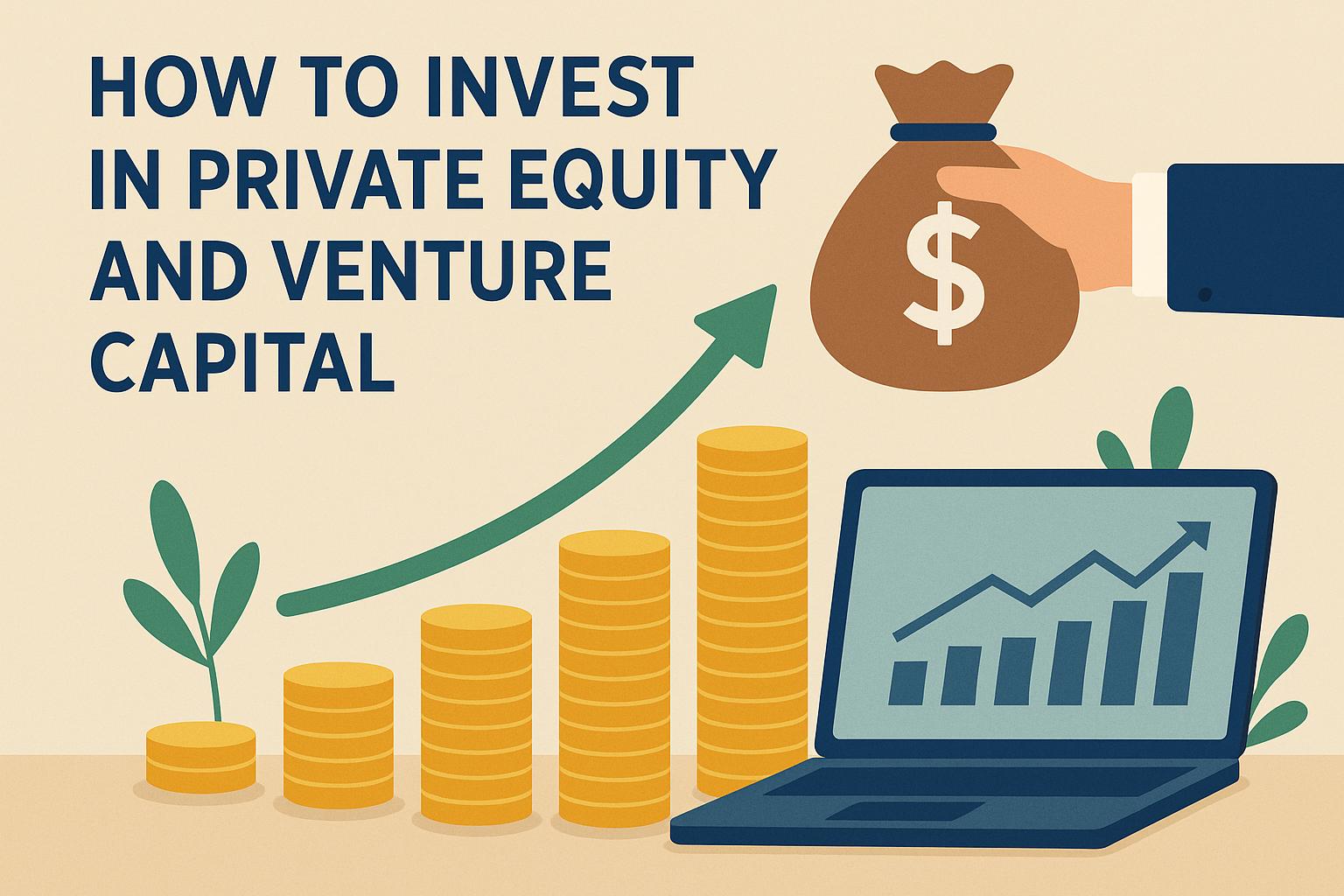Understanding Private Equity and Venture Capital
Investing in private equity (PE) and venture capital (VC) typically involves allocating funds to private entities not traded on public stock exchanges. These private companies, ranging from startups to well-established enterprises, are often targeted at various stages of their life cycles depending on the type of investment. Private equity firms generally invest in mature companies, frequently via buyouts, aiming to improve the company’s value before selling it for a profit. On the other hand, venture capitalists typically focus on early-stage companies, particularly startups, that exhibit high growth potential, despite existing in riskier early phases.
Access to Investment Opportunities
Engaging in private equity and venture capital requires access to exclusive investment opportunities. Such opportunities are typically not accessible to the general public. Individuals often need to become part of a network of accredited investors or assume the role of a limited partner in a fund to gain this access. Accredited investors are entities or individuals who satisfy specific financial criteria, making them eligible to invest in non-public offerings, which can otherwise be inaccessible due to regulatory constraints.
Eligibility Criteria
Compliance with the criteria established for accredited investors is crucial for gaining access to these investment opportunities. This usually involves meeting particular income or net worth thresholds. For instance, regulations in many regions stipulate that an individual should have an annual income surpassing a predefined limit—frequently around $200,000—for at least the past two years. Additionally, they should possess a net worth exceeding a specific sum, commonly $1 million, excluding the value of their primary residence. Meeting these criteria is essential for qualifying as an accredited investor, granting entry into potentially lucrative investment prospects in the private equity and venture capital domains.
The Role of Limited Partners
Limited partners (LPs) play a significant role in the realm of private equity and venture capital by supplying capital to these funds. They place their trust in the fund managers to make informed investment decisions on their behalf. These fund managers, referred to as general partners (GPs), are responsible for sourcing and managing the investments, with the overarching goal of generating attractive returns for their investors. By participating as an LP, investors can gain indirect exposure to carefully selected investment opportunities without the necessity for active management or daily involvement in investment operations.
Due Diligence
Before committing any capital to these investments, conducting comprehensive due diligence is critical. This process entails thoroughly evaluating the fund managers’ historical performance, gaining a firm understanding of the fund’s strategic approach, and carefully assessing the risks and potential returns involved. Investigating the fund’s track record, reviewing past performance metrics, and engaging in discussions with prior investors can offer vital insights into the fund’s prospective success. This due diligence is a foundational step in safeguarding one’s investment and aligning it with personal financial objectives and risk tolerance levels.
Investment Risks and Rewards
Engaging in private equity and venture capital investments entails a unique set of inherent risks, accompanied by the enticing potential for substantial returns. One significant characteristic to note about these investments is their illiquid nature. This means that once funds are allocated, they are generally tied up for several years—often five to ten—before investors can realize any returns. While successful investments can yield substantial financial gains, there is also the inherent risk of capital loss, prevalent in early-stage ventures that might not succeed as expected. Understanding these dynamics is crucial for investors considering this avenue of investment.
Portfolio Diversification
A prudent approach to mitigating the risks associated with private equity and venture capital investing is through portfolio diversification. By spreading investments across various funds or sectors, investors can decrease their exposure to the fallout from the potential failure of a single company or sector. Diversification helps distribute risk more evenly and allows investors to benefit from the broader economic growth across different industries and regions, thus enhancing the overall stability of their investment portfolio and potentially boosting long-term returns.
Engaging with Fund Managers
Active and ongoing communication with fund managers is essential for investors to comprehend the performance of their investments fully. Regular updates, comprehensive reports, and periodic meetings offer valuable insights into the progress of the investments and highlight any challenges that the fund may encounter. Establishing a strong relationship with fund managers promotes transparency and fosters trust, enabling investors to make informed decisions and adjust their strategies as necessary. This collaborative engagement is a cornerstone for successfully navigating the complex landscape of private equity and venture capital investing.
Conclusion
Investing in private equity and venture capital demands meticulous consideration along with a profound understanding of the associated risks and rewards. For qualified individuals who meet the eligibility criteria—such as accredited investor status—these investments present unique opportunities for growth and diversification that are otherwise inaccessible through traditional investing avenues. Engaging in thorough due diligence, constructing a diversified investment portfolio, and maintaining active communication with fund managers constitute crucial steps in effectively navigating this investment landscape. These practices ensure informed decision-making and align investment strategies with both personal financial goals and broader market opportunities.
For those interested in beginning their journey in private equity and venture capital investing, consulting with financial advisors or exploring reputable educational platforms might provide additional guidance and insights. This cautious approach ensures a comprehensive understanding of the investment environment and optimizes the benefits of engaging in private equity and venture capital markets.
This article was last updated on: November 21, 2025
